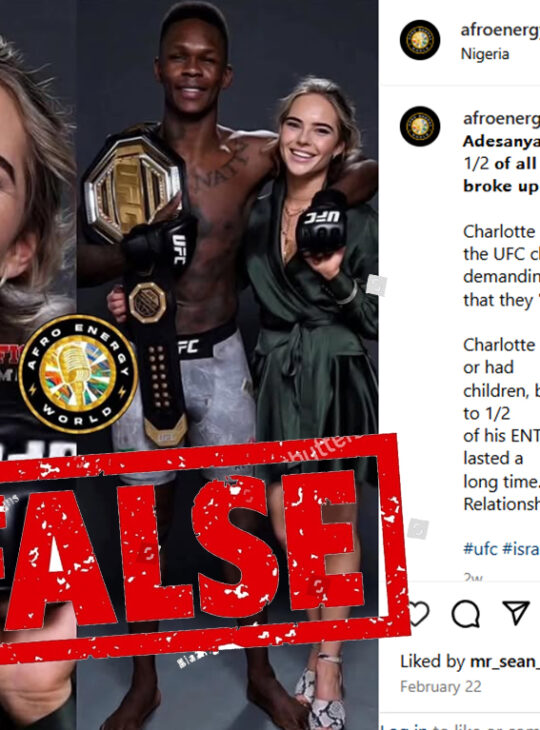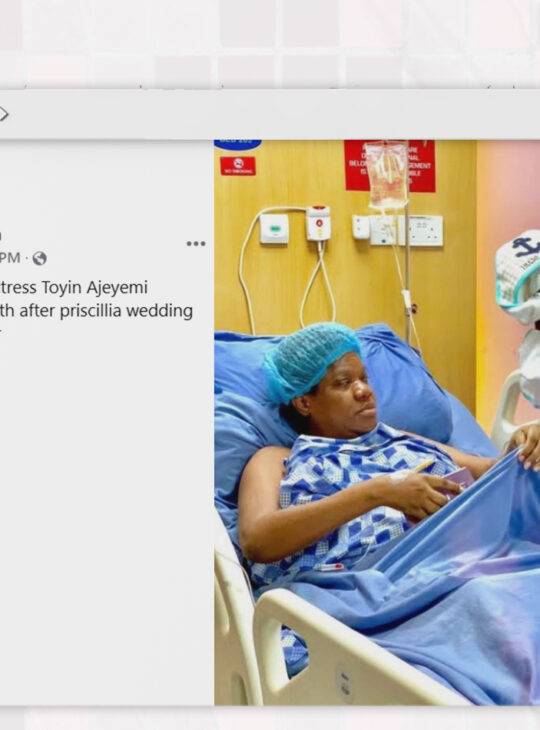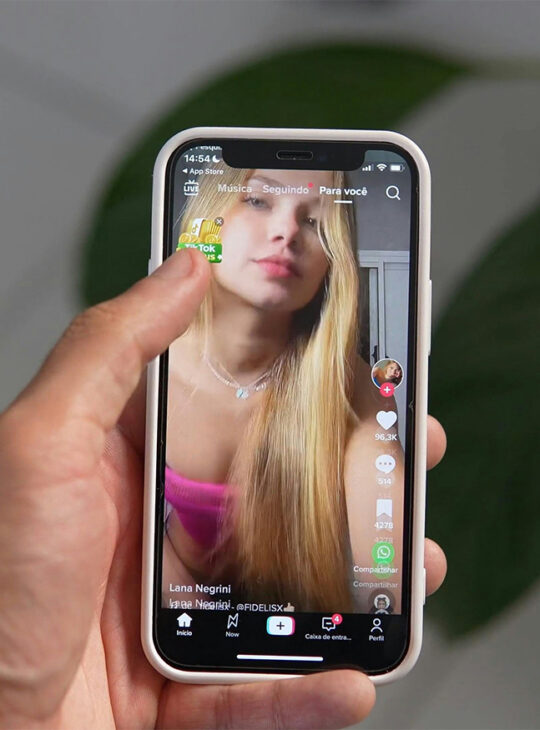The Trust Trap: How Nigerian Influencers Are Powering Disinformation
In May 20225, news broke that thousands of Nigerians had fallen victim to a cryptocurrency Ponzi scheme known as CryptoBridge Exchange, or CBEX. The reported losses surpassed a trillion naira.
CBEX was said to have appeared legitimate on the surface, giving an illusion of credibility to the public. Getting people to invest in the scheme, however, hinged on a viral marketing campaign, through word of mouth and online influencers. A report by the Foundation for Investigative Journalism (FIJ), details how several popular influencers actively promoted the scheme.
The case of CBEX is not isolated. In 2021, popular Nigerian artist, Davido promoted Racksterli, an investment platform that duped investors of over 1 billion naira and crashed in the same year. Skit maker Broda Shaggi endorsed the Zzapo Mobile scam in 2019 and his counterpart, Sabinus, endorsed a crypto trading/investment company known as AI Mining which crashed in 2023. These cases reflect a growing and dangerous trend in Nigeria’s digital space where influencers are becoming conduits of disinformation–whether by intent or otherwise.
Why Young Nigerians Look to Influencers
Nigeria is one of Africa’s most digitally engaged countries. It has over 30 million active social media users. With a booming influencer and content creator economy across platforms like Meta’s Facebook and Instagram, X (formerly Twitter), TikTok, and YouTube, digital culture is now deeply intertwined with everyday life.
Influencers are no longer just entertainers. They are now significant players in Nigeria’s information ecosystem. Their ability to shape narratives, mobilise followers, and drive trends makes them powerful regardless of their authenticity or the lack of it.
Reuters Digital News Report 2025 found that younger Nigerians’ trust in traditional media is high but they still feel alienated from these platforms due to their slow reporting, and disconnection from their ground reality. In contrast, influencers or ‘faves’ are seen as relatable and accessible. This builds ‘parasocial relationships’ in the audience–a non-reciprocal connection that individuals form with a celebrity where they feel a sense of familiarity and trust with them despite never having met.
The 2020 #EndSARS protests highlighted the power of digital influence. What began as an online campaign against police brutality quickly morphed into a nationwide movement, largely coordinated via social media. Influencers were at the center of real-time reporting, shaping public perception of the protests.
Influencers Influencing Misinformation and Disinformation
Misinformation from Nigerian influencers has spanned the political, economic, and religious spheres. During the 2023 general elections, for example, many influencers were reportedly hired by political parties to shape public opinion to their advantage.
A BBC investigation revealed that influencers were paid up to ₦20 million by politicians to spread disinformation about their political opponents. Two whistleblowers in the investigation said, in some cases, political parties even offered influencers government positions as incentives.
Similarly, the International Centre for Investigative Reporting (ICIR) reported that several influencers on X spread false results for Labour Party’s candidate, Peter Obi, sowing confusion and mistrust among voters.
Scams are not limited to politics. In a country where people are constantly looking for means to earn extra cash, it is easy to fall prey to fraudulent schemes. In 2021, Kachi Doyle, daughter of Nollywood actress Ireti Doyle, ran an empowerment scheme under the guise of retailing a beauty and haircare business that she owns. Thousands of young women joined the scheme–many lured by her social media persona and her mother’s reputation. When they did not get their products at the stipulated time, participants created a group chat to call her out. They calculated their collective loss at over ₦30 million.
Why Do Influencers Spread Misinformation?
Financial Incentives: Many platforms reward content based on engagement, not accuracy. The more sensational or viral a post, the higher its reach – and the more money it potentially generates. For some influencers, this model encourages the creation of clickbait or controversial content, regardless of its accuracy.
Lack of Accountability: A report by The WHO’s Africa Infodemic Response Alliance stated that the lack of accountability often emboldens influencers to share any content without fear of serious consequences. The report added that with the absence of regulatory oversight, they share misleading content as they are not penalized for doing so.
Meanwhile, the consequences of influencer-driven misinformation can be severe. From public health risks to the erosion of trust in democratic institutions, the ripple effects are profound. When influencers promote fake cures, spread conspiracy theories, or push deceptive investment schemes, their followers often accept such claims without scrutiny, leading to enormous financial loss, health complications, among others.
Efforts to Combat the Trend
Platform Regulation: TikTok, YouTube, and X have introduced policies aimed at curbing disinformation. These include shadow banning, demonetisation, strikes, and content takedowns. However, this is inconsistent. Algorithms still prioritise engagement over accuracy, allowing false content to thrive.
Collaborations: Organizations such as NewsVerifier Africa have made significant strides in fact-checking misleading content. Still, their work faces limitations. Debunking often struggles to match the virality of false information. Hence, collaboration between influencers and credible fact-checking organisations could help correct misinformation where it spreads fastest. Fact-checking initiatives, like Fact Matters, already partnered with Nigerian influencers in 2021 to fight disinformation. This model can be expanded.
Also, there is an urgent need for digital literacy initiatives that target both influencers and their audiences. One model is the Aspen Institute’s work in Germany, which engaged influencers on their roles in times of crisis. Nigeria could adopt a similar approach.
Ethical Guidelines and Accountability Structures: Governments and digital stakeholders must develop ethical codes for influencers. The UK’s Advertising Standards Authority (ASA), for example, mandates clear ad disclosures. Norway’s ‘Retouched Photo Law’ requires influencers to declare altered images, protecting mental health and body image among youth. Nigeria could adopt similar safeguards to hold creators accountable without stifling creativity.
Conclusion
Influencers now play an outsized role in shaping public discourse in Nigeria. Their platforms offer powerful tools for education and activism – but also for disinformation and exploitation. Whether promoting crypto scams or amplifying political propaganda, their influence cuts both ways.
As trust shifts from traditional media to digital personalities, it is essential to hold influencers accountable, not just as entertainers, but as de facto public figures. For Nigeria to build a more informed and resilient digital society, transparency, ethical standards, and critical media literacy must become part of the influencer economy.



